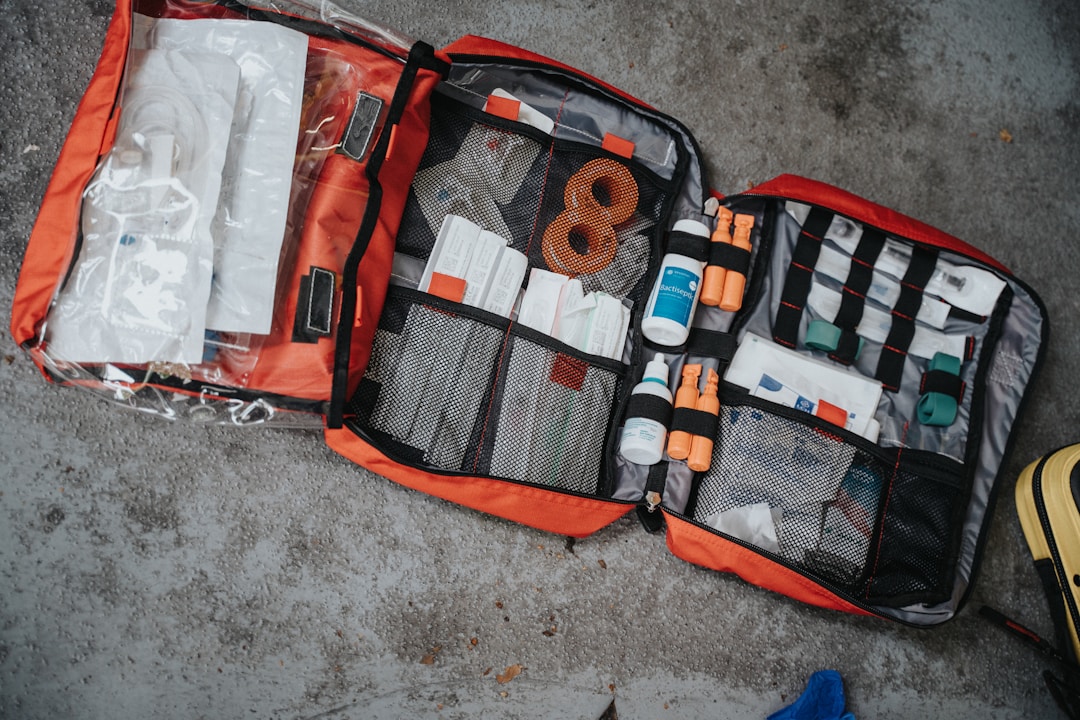Preparing for cold weather can seem overwhelming, which is why we’ve compiled the following recommendations from the Federal Emergency Management Agency (FEMA), the National Weather Service, the Red Cross, and other government organizations to help you prepare for the winter snow, sleet, and rain.
It has been our experience that once you stock up on some groceries, winterize your home, prepare an emergency kit, and stay warm, the weather report will be the least of your worries during this season. Keep reading, and don’t forget to pay attention to your local weather report.
Stock up on cozy throws.

Winter is the perfect time to stock up on cozy blankets for you and your family. Besides offering warm comfort during the harsh winter weather, a blanket is a great way to add some stylish elements to your home. If you’re looking for extra warmth, consider the blanket’s texture and material. A fleece blanket, cotton blanket, and wool blanket should be part of your winter essentials due to their insulating qualities. For extra comfort, keep extra fleece blankets in the rooms where your family spends the most time.
If you’ll still have some of your outdoor furniture out during the winter season, a sheepy fleece or quilt could be a great addition to your outdoor sofas and could also match your outdoor pillows. Besides being great winter home accessories, you can also gift ultra-soft baby blankets or custom photo blankets as holiday gifts to the new parents in your life.
Have an emergency kit in your car.

Sometimes, winter storms can be difficult to predict, so much so that a storm can strike suddenly when you’re on the road. To ensure your safety during heavy snowfall, always have a well-stocked auto-emergency kit in your car. This kit should have everything you need—road flares, a collapsible snow shovel, extra tires, jumper cables—if you suffer a car breakdown or are stranded in a remote area.
Besides a first aid kit, also include a flashlight with working batteries and an extra pair, just in case. Have some food with you that won’t freeze or go bad; a pack of chips, nuts, and cookies should do. An extra blanket, an inflatable pillow, a hot water flask, a phone charger, and extra socks, boots, and gloves should also be added to this kit.
Stock up on food.

During the winter months, most grocery stores tend to get overwhelmed with last-minute shoppers looking to stock up for the cold weather. To avoid the hassle that comes with a last-minute store run, or getting stuck in a snowstorm during a dash to the store, make a meal plan in advance of the heavy snow and get your pantry stocked with the right foods.
If you have a big household, the Federal Emergency Management Agency (FEMA) recommends having a three-day supply of non-perishable food items. Stocking up on bottled water, canned soups, protein bars, baking mixes, grains, nut kinds of butter, honey, and energy drinks is a great place to start.
Schedule a roof inspection months in advance.

If you’re a new homeowner moving into an older home, one of the renovation projects you should prioritize is a roof inspection. A local roofing company can help you get your roof ready for winter by performing routine roof maintenance services that include gutter cleaning, leak repairs, dry rot repairs, moss removal, and a full shingle inspection. They’ll also offer advice on issues such as tackling snow and ice melt around your drains in the winter and how to insulate your roof.
Contact at least three contractors to compare roof estimates. You’ll need a roofing contractor who’ll be willing to guide you through each step of your roof repairs. A great way to know that they’ll be with you each step of the way is by gauging their responsiveness. For instance, did they take a long time to process your roof estimate? Great customer service is a great marker of professional residential roofing service, so pay attention to how they treat you.
Also, consider the roofer’s years of experience, warranty offered, and quality of work. To gauge their quality of work, ask them to refer you to past clients or to show you their portfolio. Experience in the roofing industry means that they’ll be able to properly diagnose your roofing problems and recommend the best solution to match your roofing needs. A workmanship warranty provides homeowners with coverage against roof installation or workmanship errors. Consider a contractor who offers a 10-year workmanship warranty.
If you’ve just moved to the Portland Metro area, for instance, and are looking for a roofing company in Portland, OR, seek referrals from people you trust such as your realtor or family members living in the Portland area. Alternatively, online resources like Yelp, HomeAdvisor, the Better Business Bureau (BBB), and Angie’s List can also offer helpful leads.

Leave a Reply